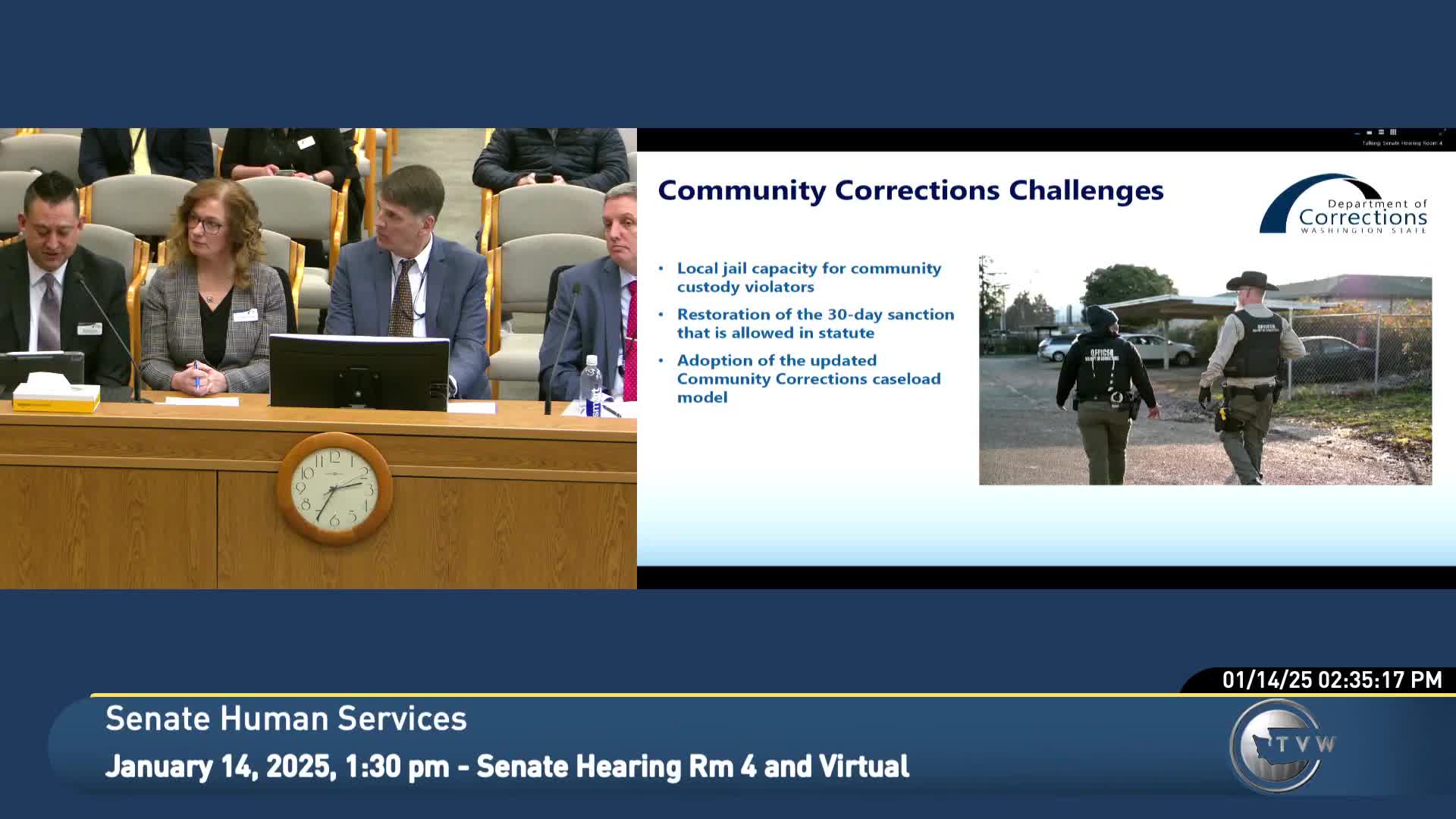Bill would require DOC to make reasonable efforts to accommodate religious diets at no cost
Get AI-powered insights, summaries, and transcripts
Subscribe
Summary
Senate Bill 5131 would require the Department of Corrections to accommodate religious diets free of charge and permit coordination with nonprofit partners for donated or special menu items; DOC supports the policy but warned the current draft has provisions that would raise significant costs.
Senate Bill 5131, sponsored by Sen. Claire Wilson, would require the Washington State Department of Corrections to make reasonable efforts to provide religious diets to incarcerated individuals at no cost and to coordinate with nonprofit partners for donated or special menu items. The Human Services Committee heard the bill and multiple witnesses.
Kelsey Ann, committee staff, summarized current DOC food‑service policy: at intake incarcerated people may select a religious diet (vegetarian, halal or kosher) at no cost; a later change of religious diet triggers a fee; therapeutic diets determined by medical review take precedence over religious diets unless declined. The bill would require DOC to attempt to provide religious diets at no cost, seek nonprofit coordination for donated items and allow a sponsor deadline not to exceed 30 days before a religious event.
DOC said it supports the policy intent but cautioned that the current draft contains provisions that would require significant funding and staffing. Danielle Armbruster, DOC assistant secretary for reentry, told the committee, "The Department fully supports the policy of Senate Bill 5131," but DOC's internal estimate (shared as an illustrative figure) suggested large staffing and capital costs to prepare and deliver expanded religious meals and to add donation storage: the committee briefing cited an illustrative DOC estimate of $13.4 million for FY26–27 in personnel and $9 million in capital costs to expand kitchen and refrigeration capacity, and characterized those as illustrative estimates rather than final budget requests.
Religious advocates and chaplaincy groups urged the change. Matthew Perry, executive director of Jewish Prisoner Services International, said Washington does not currently deliver kosher meals that meet Jewish dietary requirements to some people who request them and that the bill would advance compliance with religious requirements.
Details and committee discussion - Recognized religious diets now in policy include vegetarian, halal and kosher; the bill is silent on recognition of other religions in its current draft. - The bill would require DOC to provide therapeutic diets that also accommodate requested religious diets when clinically appropriate. - DOC offered to work with the sponsor and committee staff to narrow language and reduce the fiscal note while preserving the bill’s intent.
No committee vote was held during the hearing. Supporters said they would work with DOC to refine language and address cost and operational questions.
Ending Supporters framed the bill as a safety‑ and culture‑building measure that can reduce tension in facilities by respecting religious practices; DOC asked for additional time to develop fiscally and operationally feasible implementation options.
